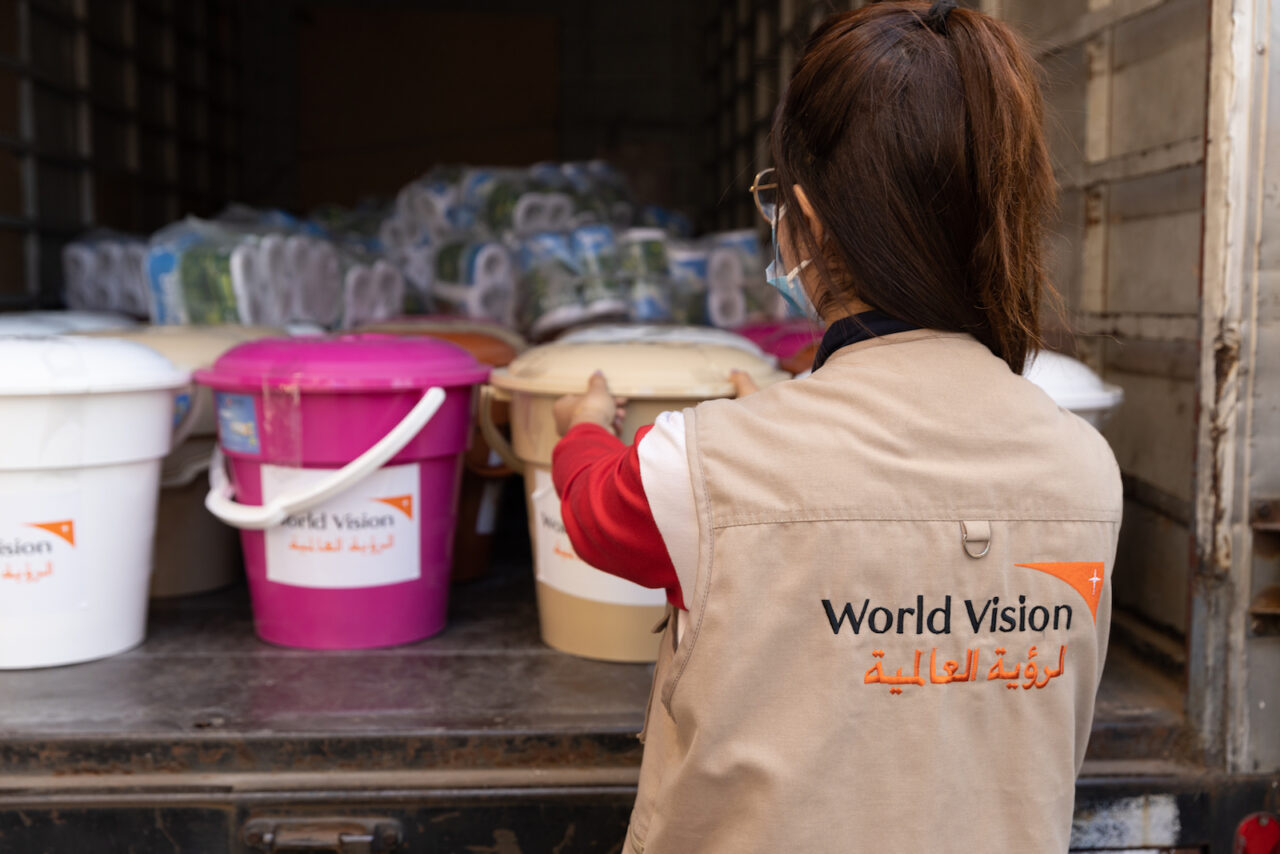One year on from the Beirut blast: Thousands struggle to survive Lebanon’s country-wide economic collapse
Media Contact :
August 3, 2021
Senior Public Relations Manager
[email protected]
m 404-735-0871
Media Contact :
August 3, 2021
Senior Public Relations Manager
[email protected]
m 404-735-0871

BEIRUT (August 2, 2021) — In the one year since the Beirut blast, a worsening economic crisis has vastly increased the numbers living in poverty, creating a worsening humanitarian crisis for Lebanon’s children, warns global humanitarian organization, World Vision.
In the months following the August 4 explosion that killed 207 people and left some 300,000 people homeless, World Vision worked with communities to repair more than 600 homes, 10 schools, and provide 4,700 children and caregivers with psychosocial support.
But the scale of that emergency is now being dwarfed by an economic crisis that has brought hyper-inflation, destroyed family savings, and resulted in food, fuel, medical and power shortages, leaving millions of people struggling to survive. One million children – around 15% of Lebanon’s population of 6.8 million – are now in need.
The economic and financial crisis has been driven by a mix of factors but was accelerated by the explosion at a warehouse in the port which destroyed large parts of the capital. Lebanon is now reeling under the weight of a political crisis, street protests and the effects of responding to the COVID-19 pandemic that has destroyed businesses and resulted in a brain drain as professionals abandon the country.
The UN estimates that some $300 million is needed to provide aid to around 1.5 million Lebanese and 400,000 migrant workers living there. But approximately half of Lebanon’s 6.8 million people are now thought to be living in poverty. Approximately one million of Lebanon’s 2.1million children are in need.
Lebanon also hosts the highest number of refugees per capita of residents in the world, with over one million Syrian refugees and more than 270,000 Palestine refugees.
“The humanitarian crisis facing Lebanon is extremely worrying and it is worsening. Families are losing jobs, business and livelihoods. Their savings are disappearing as hyperinflation makes them worthless and there is a real fear of the potential for sectarian conflict to grow in this tense atmosphere,” says Hans Bederski, World Vision Lebanon National Director. “I am very worried about the country’s children who are now going hungry, witnessing chaos and protests, and who have already suffered school closures in response to the pandemic.”
Bederski said “the people of Lebanon have shown incredible resilience and community engagement to help us meet the needs of 150,000 people – almost half of all those affected by the blast. Aside from house and school repairs, our teams have worked hard to rehabilitate common spaces, supported dozens of micro businesses, provided 1,200 families with cash assistance and distribute thousands of food parcels and hygiene kits.”
World Vision is responding to the crises via long-term development programs in communities across the country, with a focus on livelihoods. The work supports more than 890,000 Lebanese, and Syrian refugees. Of these, 490,561 are children.
About World Vision:
World Vision is a Christian humanitarian organization conducting relief, development, and advocacy activities in its work with children, families, and their communities in nearly 100 countries to help them reach their full potential by tackling the causes of poverty and injustice. World Vision serves all people regardless of religion, race, ethnicity, or gender. For more information, please visit www.WorldVision.org/media-center/ or on Twitter @WorldVisionUSA.